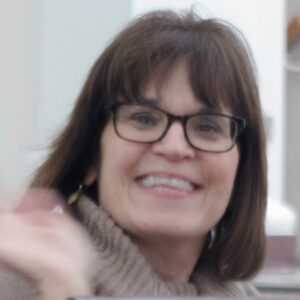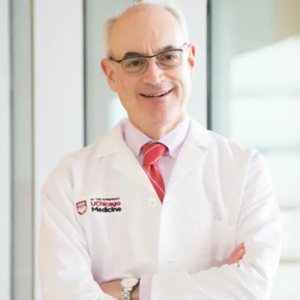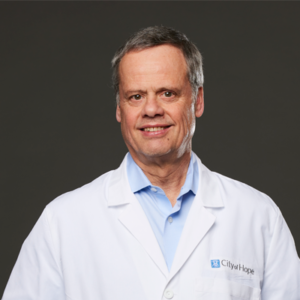Nicholas Vogelzang, MD, 72, an internationally recognized oncologist who dedicated his professional life to researching and treating genitourinary cancers as well as mesothelioma, died on Sept. 20.


As remembered by Sonali Smith, MD, the Elwood V. Jensen Professor and chief of the Section of Hematology/Oncology at the University of Chicago:
“Those of us who knew Dr. Vogelzang remember him as a trusted colleague with incredible warmth and a larger-than-life personality, as well as mentor and friend to many. He was known for his very direct, personal, and passionate interactions with patients.”
Dr. Vogelzang received his BA from Trinity Christian College in Palos Heights, IL, in 1971 and his MD from the University of Illinois at Chicago. He completed his residency training at Rush University Medical Center and medical oncology training at the University of Minnesota.
In 1982 he was recruited by Harvey Golomb, MD, to join the faculty in the Section of Hematology/Oncology in the Department of Medicine at the University of Chicago, where he remained for over 20 years, during which time he held several leadership roles, including director of the Genitourinary Oncology Program, which he successfully built from scratch to one of national recognition, and director of the University of Chicago’s Cancer Research Center (1999-2003).
Remembering Dr. Vogelzang, Dr. Golomb states: “I hired Nick in the early 1980s; he turned out to be an excellent clinician who was well liked by his patients and his peers. He developed our GU oncology program and received referrals from throughout the country. He was a hard worker and very attentive to his patients. He will be missed by his friends and former colleagues at UCMC.”
While at the University of Chicago, he was honored as the inaugural Fred C. Buffet Professor. The Buffett professorship was established by a gift from the Rebecca Susan Buffett Foundation in honor of her father, the late Fred Buffett.
In 2004, Dr. Vogelzang was appointed as director, executive vice president for academic affairs and professor at the Nevada Cancer Institute, where he remained until 2009, at which time he joined the Comprehensive Cancer Centers of Nevada, a US Oncology practice, where he served as a GU medical oncologist.
He maintained his research and educational activities as clinical professor of medicine at the University of Nevada, Reno School of Medicine, and UNLV’s School of Medicine until recently.
Dr. Vogelzang served on a multitude of boards and committees. For the American Society of Clinical Oncology (ASCO), he was on the board of directors from 1993 to 1996 as well as several other committees, including the Prostate Cancer Guideline Committee, the Public Relations, and the Patient Advocacy Committee, to name a few. He was also a former president of the Illinois Division of the American Cancer Society.
Dr. Vogelzang was the principal investigator of the University of Chicago for Cancer and Leukemia Group B (CALGB) grant from 1988 to 1999, and chair of the CALGB Prostate Committee from 1993 to 1999.
Dr. Richard Schilsky recalls Dr. Vogelzang with these words:
In the late 1990s, the CALGB board of directors approved a plan to expand the scope of the group’s work with formation of a Prostate Cancer Committee. Nick was a natural choice to lead it as an expert in the field and a passionate advocate for men with the disease.
He quickly built a multidisciplinary program that included urologists, radiation oncologists and translational researchers and initiated a series of innovative clinical trials. In the ensuing years, the program blossomed into a committee that has since addressed the full spectrum of genitourinary malignancies.
Perhaps most importantly, Nick mentored and inspired a younger generation of clinical researchers in GU cancer, many of whom are among today’s leaders in the field. Nick was a wonderful doctor and a generous colleague who will be deeply missed by all of us who had the good fortune to work with him.
Dr. Vogelzang was the founding board member of the Mesothelioma Applied Research Foundation (MARF) and helped found the Kidney Cancer Association. He also served as vice chair of SWOG’s Genitourinary Committee for 14 years, and was a member the American Association for Cancer Research, the American Urological Association, the Society of Urologic Oncology and the European Society for Medical Oncology.
Dr. Vogelzang was an expert clinical investigator who was instrumental in helping develop new therapies and treatments for prostate and renal cancer as well as revolutionizing the treatment of mesothelioma by discovering the first life-extending treatment for that disease.
This chemotherapy drug combination of pemetrexed and cisplatin continues to be a standard of care today. Dr. Vogelzang has more than 600 scientific publications to his credit, and was the first editor of the Textbook of Genitourinary Oncology. He was named as a Giant of Cancer Care by OncLive in 2018.
Dr. Vogelzang was an engaged mentor of several generations of fellows and young faculty at the University of Chicago, in the Cooperative Group system and in Nevada. Wendy Stock, MD, the Anjuli Seth Nayak Professor in Leukemia at the University of Chicago, remembers her time as a trainee under Dr. Vogelzang’s mentorship:
A smile always comes to my face when I think of Nick and his larger-than-life personality! Making rounds with him as a resident and then later as a fellow was an experience I’ll remember always – never a dull moment.
Dr. Walter Stadler, a recognized genitourinary cancer clinical researcher in his own right credits Dr. Vogelzang for the successful launch of his career:
Nick not only taught me how to be an oncologist, but instilled in me the enthusiasm for clinical trials and developing new therapies. His ability to generate confidence and hope in a patient was legendary and I was fortunate enough to observe and learn.
His plethora of ideas for improving the limited care we had available was a literal fountain. Much of my early career was simply to try to distill a few nuggets and bring the ideas to fruition. I had never had so much fun doing something so rewarding. I will miss him not only as a mentor, but as a friend.
He is survived by his wife Diane and children: Nicholas Jr., Adam, Timothy, Stephanie Jennings, and Brendan Meyer; grandfather to Chase, Anne, Isaac, Clara, Josiah, Pearl, Molly, Samuel, Rylan, and Reagan Vogelzang. Brother of Robert, Mark, Kathleen Groen, Philip, Michael, and Mary.
The family has suggested that donations may be directed toward the Hope Foundation for Cancer Research.
Nick was always full of ideas and energy. His enthusiasm for the profession of medicine and clinical research inspired his fellows and his younger colleagues. He was instrumental in growing our programs at the University of Chicago and in the CALGB.
We would like to thank Drs. Harvey Golomb, Sonali Smith, Wendy Stock and Richard Schilsky for their contributions.
The authors are:
Annette Westerberg
Executive manager,
Department of Medicine,
University of Chicago
Everett E. Vokes, MD
John Ultmann Professor,
Chair, Department of Medicine;
Physician-in-chief,
University of Chicago Medicine & the Biological Sciences
Walter M. Stadler, MD
Fred C. Buffett Professor of Medicine;
Dean, clinical research,
Biological Sciences Division,
University of Chicago









